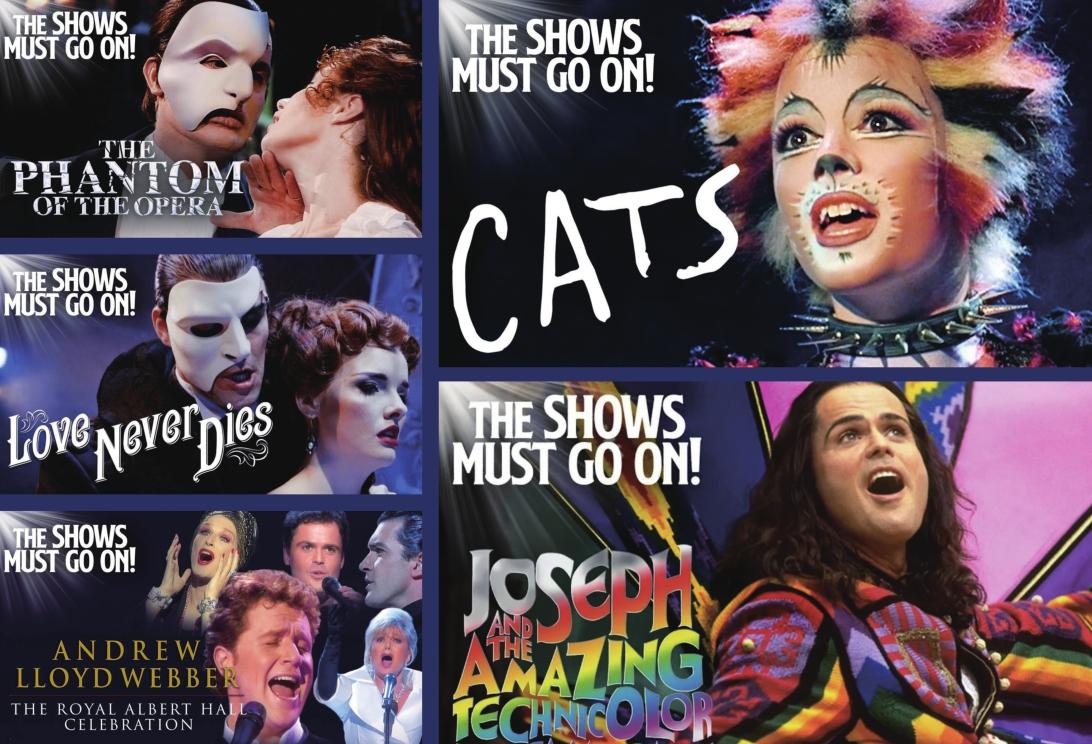劳埃德·韦伯挥之不去的魅影
司马勤
坦白说,我有点挂念安德鲁·劳埃德·韦伯(Andrew Lloyd Webber)的那些免费直播视频。我知道这个想法听起来有点怪,因为大家经常拿这个项目来开玩笑——整个想法听起来好像大有所为,甚至让人们觉得很谦恭:音乐剧界的传奇大人物邀请全球观众欣赏的他多部杰作,费用全免,同时鼓励大家慷慨解囊,向扶持因新冠疫情而失业的戏剧从业人员的慈善机构捐款。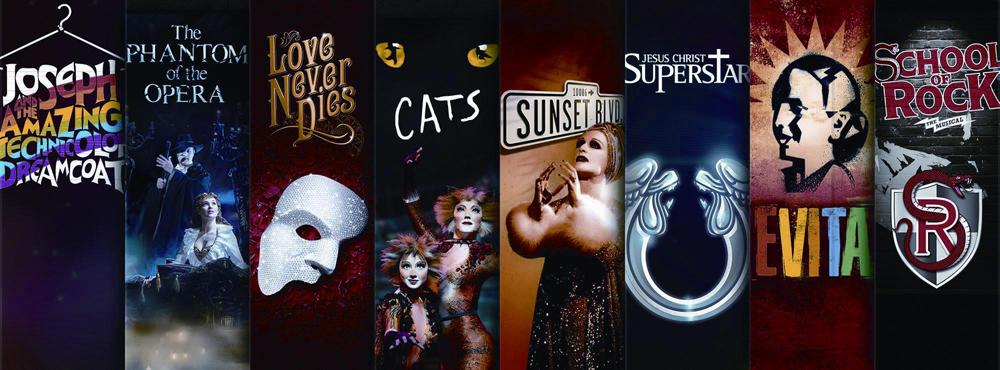
但公众很快就看穿了他:很明显,这个“戏还得照演”(The Show Must Go On,每周五晚上上线一部音乐剧的制作,在YouTube频道中上架48小时)项目,并没有把那些能够赚大钱的制作“免费”送给公众。尽管如此,我也有些新发现:我看到了《约瑟与神奇彩衣》(Joseph and the Amazing Technicolor Dreamcoat),这部创作于作曲家青年时期、取材于圣经故事题材的作品,请来了1970年代年青偶像唐尼·奥斯蒙德(Donny Osmond)担纲主角(可惜,该版本制作于1990年代,当时的奥斯蒙德早已风光不再);也观赏了当年令作曲家一鸣惊人的《万世巨星》(Jesus Christ Superstar),是一场效果不错的重演制作。《万能管家》(By Jeeves)改编自P.G.伍德豪斯(P.G. Wodehouse)的幽默人物与事迹,可惜剧情松散,只加插了几首韦伯的歌曲,只能说与韦伯式“音乐剧”勉强扯得上关系,确实令人失望。还好,皇家阿尔伯特音乐厅(Royal Albert Hall)一场庆祝韦伯生日的音乐会也上了线,阵容星光熠熠。因此,你也不能确切地埋怨他们是在挂羊头卖“猫”肉……
在这一切之中,我的确得到了一些启示。多年来我一直弄不明白,为什么每当我提到“歌剧”,周边很多人(令我又诧异又惊惶)就会自然地回答“魅影”,作为一种词汇联想模式的标志,跟音乐剧与舞台背景都没有关系。西方歌剧拥有400年的历史——如果我们从蒙特威尔第《奥菲欧》(Orfeo)的出版年份计算,应该是410年——音乐剧却要年轻得多,其起源与前期发展更难确定。现代音乐剧融合音乐、对白与舞蹈的叙事模式,到了20世纪才建立起来。
很多歌剧以及音乐剧粉丝都认为《歌剧魅影》(Phantom of the Opera,也译为《剧院魅影》)两种体裁皆不是,因为它既缺乏具有戏剧特质的紧迫性,也没有歌剧典范具有的情感张力。无论你喜欢不喜欢,这部音乐剧呈献给观众的,是纯粹的、纯正无掺杂的煽情通俗剧(melodrama)——换句话说,欧洲式轻歌剧。这个剧种在美国发展得断断续续,可是韦伯的《歌剧魅影》在百老汇成为长寿剧目,在那里常驻长达30年,直至今年3月,新冠疫情迫使剧院全都关门。《纽约客》(New Yorker)的评论家亚当·戈普尼克(Adam Gopnick)在今年年初特意重看了《歌剧魅影》并提醒读者,“情节毫无逻辑,起步慢吞吞,人物犹如硬纸板剪出来般平面,音乐则是零零碎碎拼贴出来的”。可是,这台剧目的整体效果却奇妙地有条有理。“这部音乐剧到了今天,”他写道,“跟当年首演的效果同样令人印象深刻。”
最近,我通过韦伯的免费视频重温了《歌剧魅影》。其实,严格来说用“重温”这个字眼并不恰当,因为我没有乖乖地坐着不动,把整部剧从头到尾看完。在家里看剧目的视频绝对算不上是一个合适的环境——当屏幕上的情节抓不住你的注意力时,你会忍不住站起來伸伸腿,在剧院里就没办法只能困在座位上了——但是,这部音乐剧所累积的感染力,还是令人钦佩。
首先,安德鲁爵士彻底切断了这个故事与恐怖电影的渊源——1925年那部由朗·钱尼(Lon Chaney)主演的同名电影轰动一时,有传言说电影院里观看该片的女观众们因情节过于恐怖而尖叫,甚至晕倒。音乐剧把焦点放在加斯顿·勒鲁(Gaston Leroux)1910年出版的原著小说上。然后,韦伯又删减了勒鲁书中那些烦琐的细节,聚焦于故事中的核心人物:被毁容的隐居者、美丽的女歌唱家、追求她的英俊男子;当然,还有巴黎歌剧院,那也是主角之一。
有时候,故事的设置是如此的超凡脱俗,与现实生活彻底脱节,因此无论情节多么荒谬,都好像合情合理。勒鲁故事中的巴黎歌剧院就是这么神奇,我们也可以说,韦伯这部音乐剧里的歌剧世界也同样地神奇。我们只可抱着欣赏歌剧那种“姑且信以为真”的心态来看待韦伯大量拼贴19世纪歌剧音乐元素的场景,以及他模仿莫扎特歌剧而作的混成曲——这很有可能是公众把《歌剧魅影》与歌剧混淆的最大原因——还有他厚脸皮地注入20世纪70年代浮夸前卫摇滚风格来仿照巴赫的管风琴即兴重复段。其实,这些音乐听起来,就像被困在巴黎歌剧院的地下室一样(“像是在几层楼下听着19世纪后期作品,乐声模糊”,戈普尼克这样写道),尽管这正是主创要做出的气氛。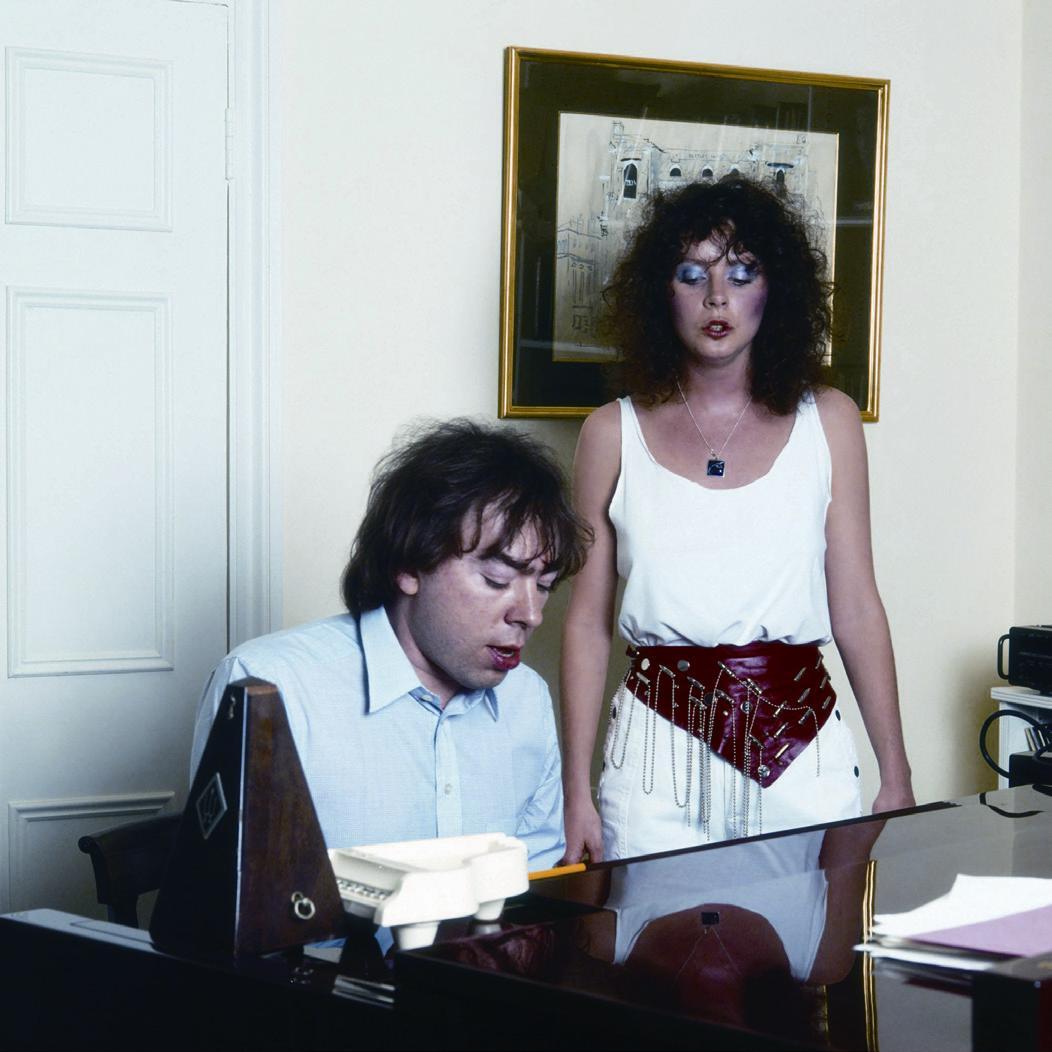
“戏还得照演”线上视频中最让我得到启发的,不是《歌剧魅影》,而是这部音乐剧的续集,《真爱不死》(Love Never Dies)。我终于看到这部音乐剧。当年,该剧在伦敦开演不久后就偃旗息鼓,我还未赶到那里戏已经休演。让我们姑且从头说起。韦伯本来很抗拒用“续集”这个词语——“这是一部独立作品”,《真爱不死》首演前他在英国国家广播电台访谈中那么表示——但剧中角色跟“上集”一模一样,而故事发生在《歌剧魅影》戏剧性落幕的十年之后。从《真爱不死》这个标题上看,我一直期盼着是007系列电影“詹姆斯·邦德”的风格,或者会有吸血鬼的出现。
第一次听说《真爱不死》,是2010年在上海大剧院的后台。当年的计划,是在纽约、伦敦与上海同步首演这部音乐剧。爱情可以不死,但这部音乐剧却寿终正寝。继《魔女嘉莉》(Carrie)之后,《真爱不死》可谓是百老汇历史上最失败的剧目。从创意、构思以至制作、排演,这部音乐剧的发展路途艰难之极(最令我印象深刻的是,韦伯的小猫咪爬上电子钢琴按错键,把整套剧总谱的电子档案删掉了)。尽管该剧最终在伦敦首演,后来在墨尔本的制作得到国际关注,但是《真爱不死》到了今天还与百老汇与上海无缘。
在线上看到澳大利亚的制作时,突然间泛起很多回忆。《歌剧魅影》当年一炮而红,韦伯就萌生过制作续集的念头。故事大纲是这样的:年轻女歌手摇身一变成为国际大明星,制作人奥斯卡·汉默斯坦(Oscar Hammerstein)特意邀请她到纽约首演(即便你猜中了这次演出幕后投资者的身份,我也会不给你奖励)。可惜,续集的诞生似乎从韦伯最初寻找合作者开始就出了问题。他找来的第一位作家是弗雷德里克·福赛斯(Frederick Forsyth),当今畅销悬疑小说大师。
虽然福赛斯的名字仍然列在主创团队之内,但他创作的剧本没有被取用,因为文本被认为“很难搬上音乐剧舞台”。福赛斯后来把剧本改编成小说《曼哈顿幽灵》(The Phantom of Manhattan)。我买来这本书,想弄清楚人家所说的故事不适合舞台的原因。我期盼小说中的情节包括行刺法国总统戴高乐(Charles de Gaulle)的阴谋,或者难民如何逃过集中营及大屠杀(以上都是福赛斯最拿手的题材)。我发现福赛斯花了一番心血去研究20世纪初期纽约的面貌,令人信服,戏剧情节上也衔接了韦伯的构思。那么问题出在哪里?在小说里,每一章节都由不同的人物来叙述。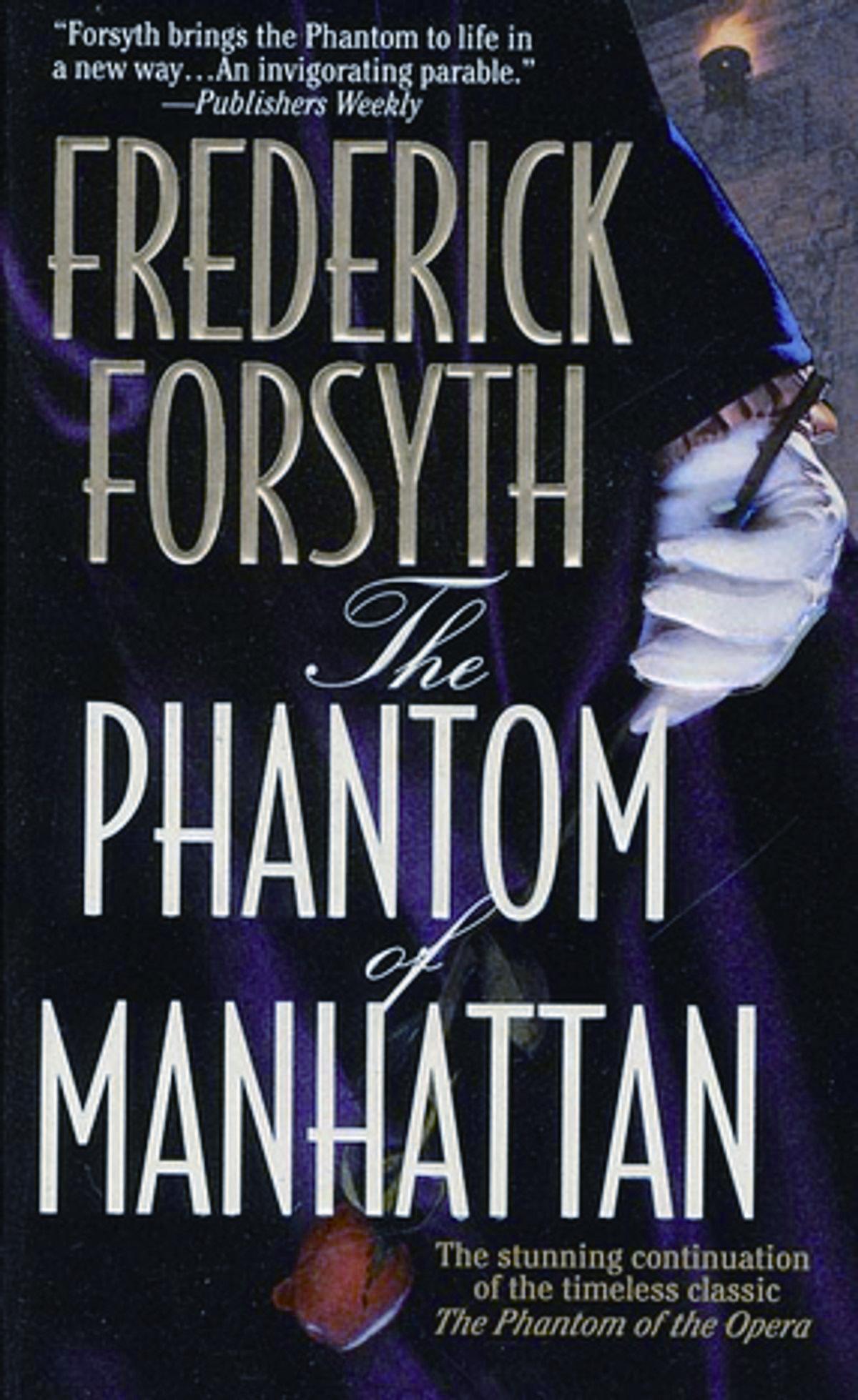
过了一段时间,《真爱不死》这个项目又找来了本·埃尔顿(Ben Elton)负责剧本,格倫·斯莱特(Glenn Slater)作词。后来又请来另一位填词人,还有多位编舞。音乐剧在伦敦首演又停演(以便有所修改),然后再次重演,经历了不少改动。很多年后,该剧的原版灯光设计承认,当年《真爱不死》的经历差点要让她离开戏剧圈。
尽管作曲家很喜爱墨尔本的制作——那是一位澳大利亚导演与设计团队改造后的成果——他依旧抱着希望,想让《真爱不死》进驻百老汇。但直到今天,该剧能跟纽约能搭上边的,就只有那套DVD制作以及这一轮的免费视频。但是在这个“被认可”的制作里,我还是察觉到一些令人沮丧的问题。
不仅仅是旋律飘忽不定而没有真正的高潮,或是模仿其他音乐风格时缺乏《歌剧魅影》的精雕细作。尽管以上两个缺点都不可忽视,但最大问题是,这部作品没有迫切地显示出它存在的理由。
作家威廉·戈德曼(William Goldman)在研究百老汇历史的《演出季》(The Season)一书里,曾犀利地讨论过剧目失败的主要原因。其中位居榜首的,就是主创团队无法达成共识,决定剧目的主旨。就像福赛斯的《曼哈顿幽灵》这本小说,《真爱不死》的每一个部件都好像来自不同的观点;但跟福赛斯笔下不一样的是,舞台上的每个人都在讲不一样的故事。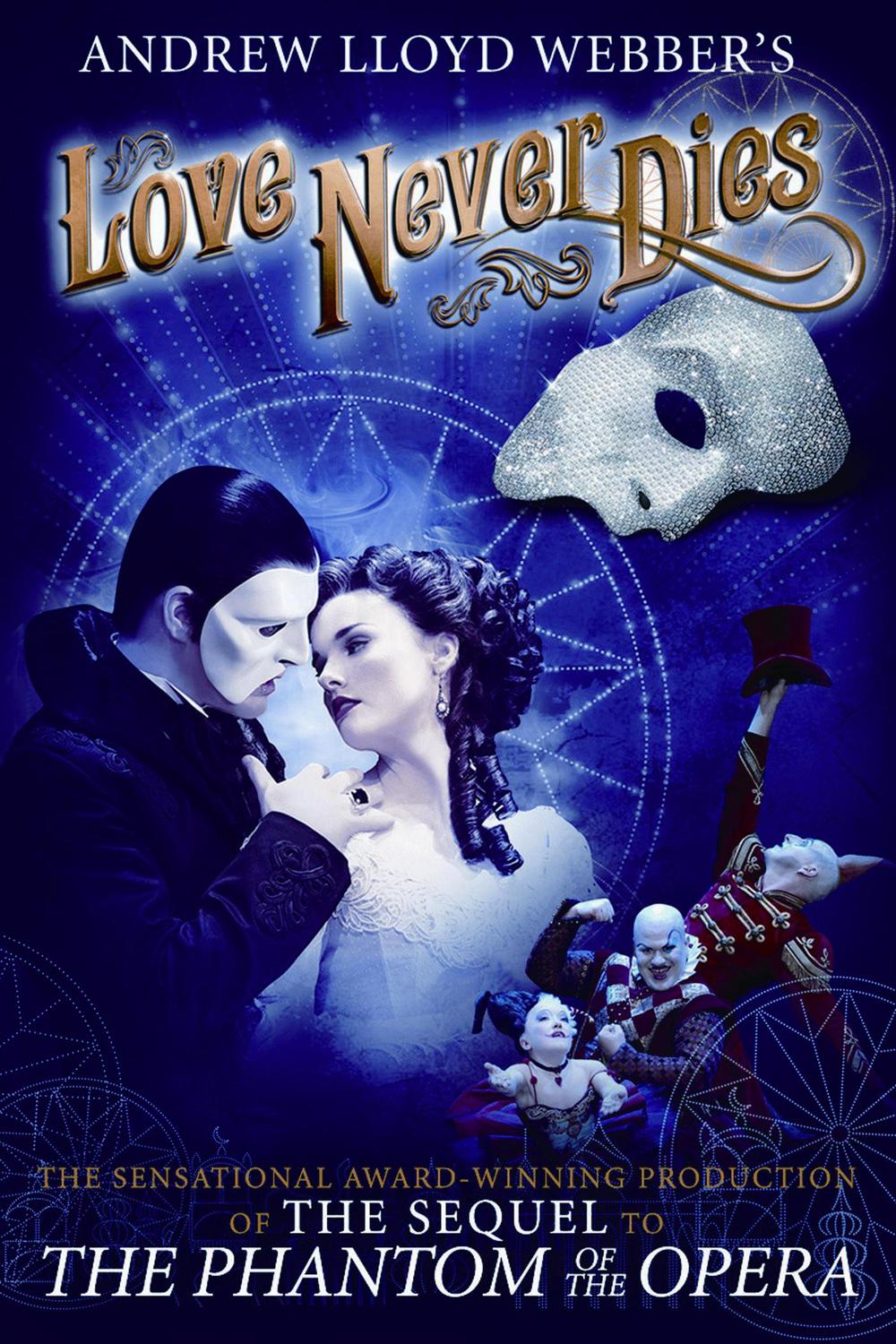
I have to admit, I sort of miss Andrew Lloyd Webbers free live streams. I know this sounds strange, considering how much we all made fun of them. The whole idea sounded so promising, humbling even: Musical theatre legend allows audiences to see his works at home for free while encouraging viewers to donate to organizations helping unemployed theatre workers.
But people quickly caught on: “The Show Must Go On” (which streamed a new musical on Friday evenings, available on YouTube for 48 hours) clearly wasnt giving away anything that would ever make money. Still, there were a few discoveries: Along with Joseph and the Amazing Technicolor Dreamcoat (a bit of biblical juvenilia starring 1970s teen idol Donny Osmond two decades after his prime) we also got a respectable revival of his first real hit, Jesus Christ Superstar. To make up for By Jeeves, less of a Lloyd Webber musical than a meandering P.G. Wodehouse adaptation with a few of Sir Andrews songs, there was a star-studded tribute from the Royal Albert Hall. So you cant exactly say they were hanging a sheeps head and serving dog meat. Cats, maybe….
Amidst all this, though, I had some revelations. For years, I wondered why whenever I mentioned“opera,” a disturbingly large number of people would answer “Phantom.” As a mark of verbal free association, it didnt show much context of the musical stage. Western opera has a 400-year history—410 if we use publication of Monteverdis Orfeo as a marker—but musical theatre is a much younger, slipperier presence to trace, its singular brand of storytelling through a unified vernacular of music, dialogue and dance not really coming into being until well into the 20th century.
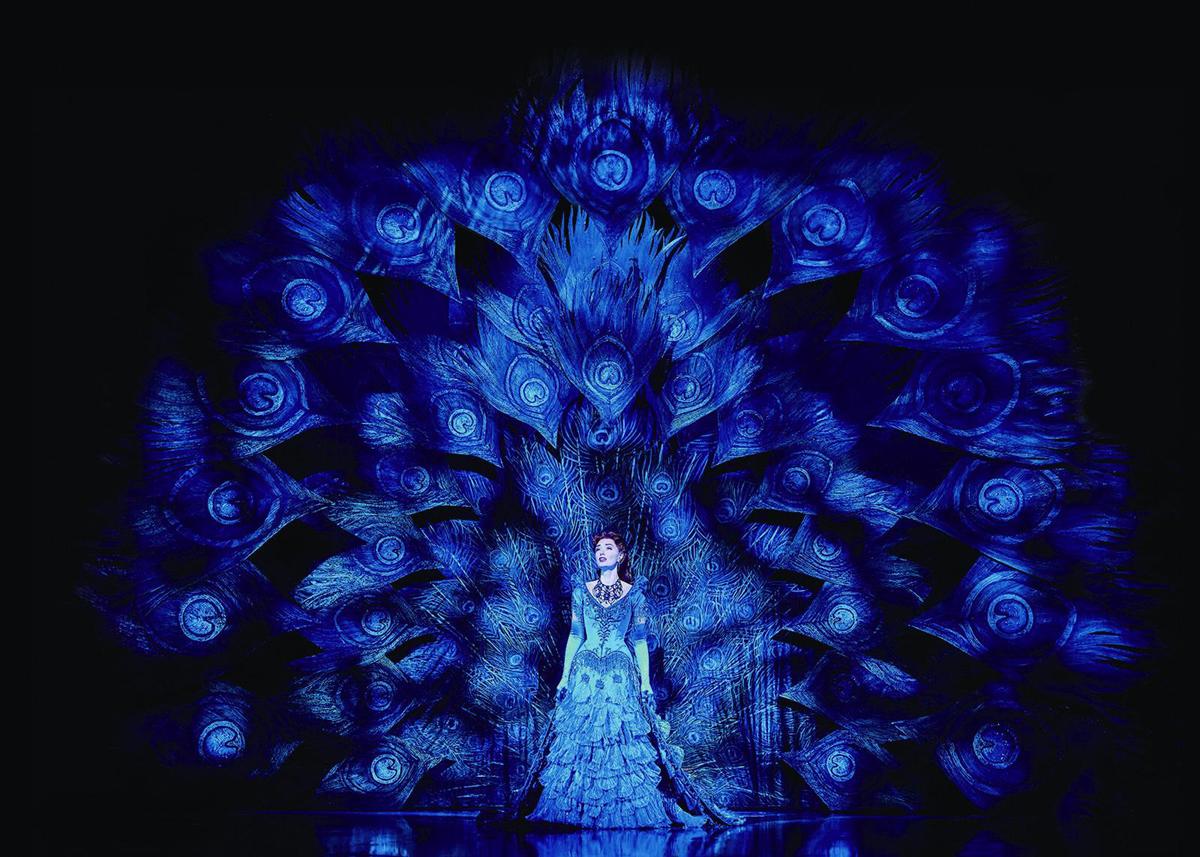
Many fans of opera and musical theatre would say that Phantom of the Opera is neither, lacking both the idiomatic urgency of theatre and the emotional firepower of opera at its best. What it does offer, quite gratuitously, is a middle path of pure, unadulterated melodrama—in other words, European operetta. That genre has had a fitful history in America, yet Lloyd Webbers 30-year-old Phantom was still haunting Broadway right up until the Covid pandemic shut down theatres in March. New Yorker critic Adam Gopnick revisited that show earlier that month and reminded readers that “the action makes no sense, it takes forever for the story to get going, the characters are made of cardboard and the music is made of bits and pieces.” And yet, the show still works. “It remains today,” he concluded, “as impressive as it was when it debuted.”
My own recent experience with the piece came through Lloyd Webbers live streams. I cant even properly call it “revisiting” the show, since Id never seen it all the way through in a single sitting. It was hardly the right setting—ones tolerance for meandering moments on screen is much lower that it is in the theatre, where people are trapped in their seats—but the cumulative effect still remains palpable.
My first notion was how thoroughly Sir Andrew had scraped away the storys historic association with early cinematic horror—the 1925 Lon Chaney film famously made women in the movie halls scream and faint—to focus more clearly on Gaston Lerouxs original 1910 novel. Then how he scraped away most of Lerouxs cumbersome prose to focus on the core characters: a disfigured recluse, a beautiful young singer, her handsome suitor, and of course, the Paris Opera House, which appropriately remains one of the title characters.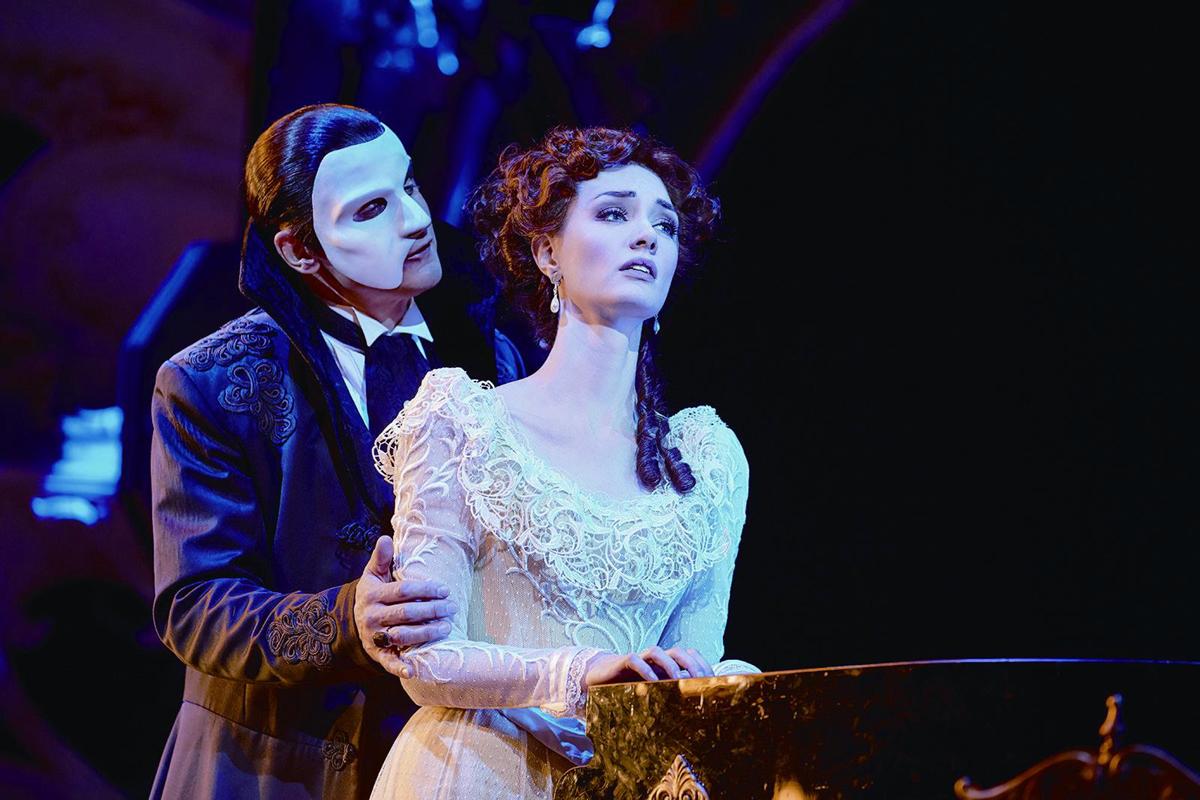
There are some settings so supremely otherworldly that they make even the most ridiculous events somehow seem plausible. Such was the case of Charles Garniers imposing Paris Opera House in Lerouxs novel, and one could say the same of using the world of opera in Lloyd Webbers show. Surely it takes operas “suspension of disbelief” to embrace Lloyd Webbers wide-ranging pastiche of 19thcentury references, a Mozart opera parody—probably the biggest reason most people confuse Phantom with opera, in fact—and organ riffs that cheekily channel the majesty of Bach through the overblown pomposity of 1970s progressive rock. The music, in fact, sounds rather like a man locked in the basement of the Paris Opera (“hearing late-19th century music, muffled, from a couple of floors down,” as Gopnick observed), though one with a keen sense of purpose.
The real revelations from “The Show Must Go On”came not from Phantom, though, but rather from its sequel, Love Never Dies. I finally saw it, for one thing, since it closed in London before I could get there. But lets start at the beginning. Lloyd Webber had originally balked at calling it a sequel—“Its a stand-alone piece,” he told the BBC before the shows premiere—but it does feature the same characters, a decade after the curtain dramatically came down on Phantom. From the title, Id been expecting a James Bond film, or maybe vampires.
I first heard about Love Never Dies backstage at the Shanghai Grand Theatre in 2010, when plans were still underway to open the show simultaneously in New York, London and Shanghai. Love may never die, but the show did. Next to Carrie, the biggest flop in Broadway history, Love Never Dies had one of the most troubled journeys to the stage Ive ever followed (my favorite chapter involves Lloyd Webbers kitten climbing on the composers digital piano and deleting the only existing version of the score). Though it opened in London, and a subsequent production in Melbourne gained some international traction, it still hasnt made it to Broadway, or Shanghai.
Seeing the live stream from the Australian production brought back memories in a rush. Lloyd Webber first thought about continuing the story early on in Phantoms success. The young singer, now an international star, would be invited by the impresario Oscar Hammerstein to make her New York debut(no bonus points for guessing whos funding the production). The problems revisiting the Phantom story, however, seemed to start right with his initial collaboration. The first person involved in developing the story was Frederick Forsyth, a best-selling author of modern-day thrillers.
Though Forsyths name is still on the credits, his work on Love Never Dies was deemed “difficult to adapt to the musical stage.” He later repackaged his treatment as a novel, The Phantom of Manhattan, which I picked up strictly to figure out what everyone thought was too difficult. I was hoping the Phantom might launch a plot to kill French president Charles de Gaulle, or survive the Holocaust (a couple of Forsyths favorite topics), but the research into early 20th-century New York City was actually quite convincing and Forsyth stuck to the brief. The problem? Each chapter is narrated by a different character.
After a hiatus, the project began again with a book by Ben Elton and lyrics by Glenn Slater. Then another lyricist, and multiple choreographers. The show opened, then closed for retooling, then reopened again with notable changes. Years later, the original lighting designer claimed that working on the production almost led her to leave the theatre industry.
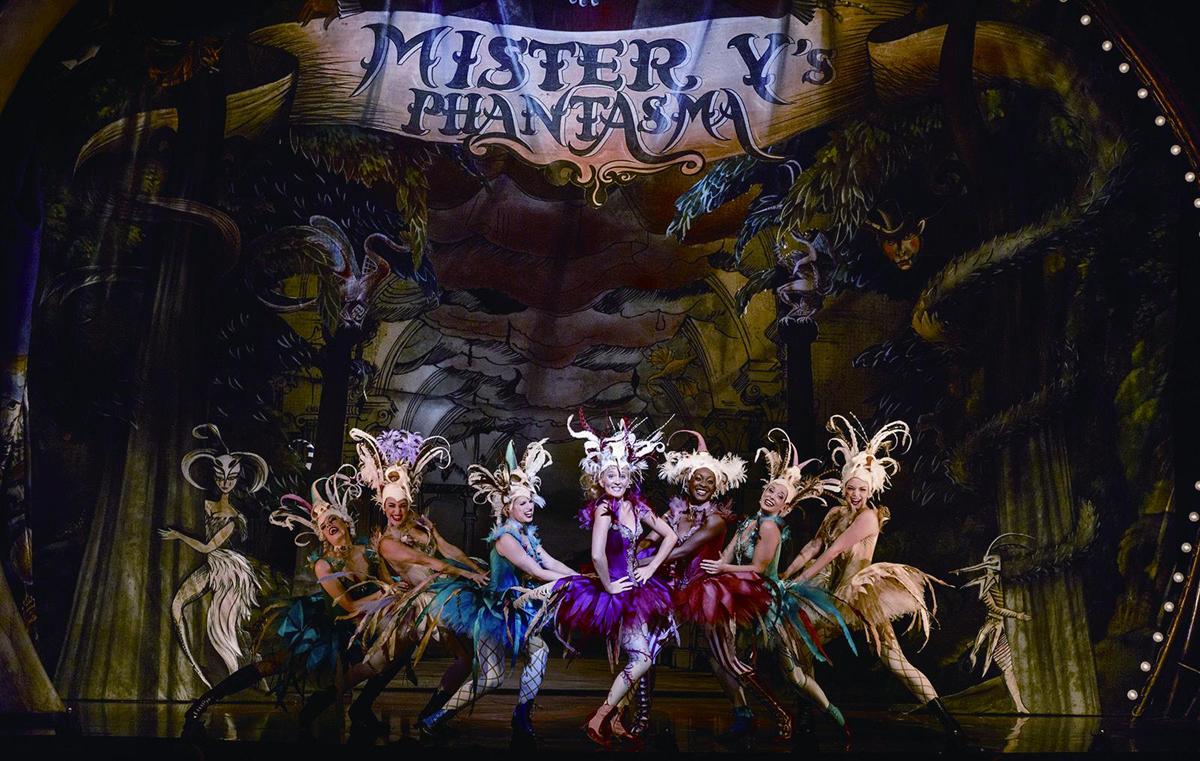
Although the composer had liked the Melbourne production—again retooled by an Australian director and design team—and wanted to bring it to Broadway, releasing it on DVD and later internet live streaming was close as it would get to New York. Even seeing the “approved” version, the problems were painfully apparent.
It wasnt just that the melodies drifted without really soaring, or that its similar parodic influences lacked the careful balance of Phantom, though both were the case. Rather, the show showed no burning reason to exist.
In The Season, his candid look at Broadway, William Goldman listed the main reasons that theatre productions fail. High on the list were shows where the collaborators couldnt agree on what the show should be. Much like Forsyths Phantom of Manhattan, each individual component in Love Never Dies seems to be coming from a different perspective. But unlike Forsyth, they each seem to be telling a different story.